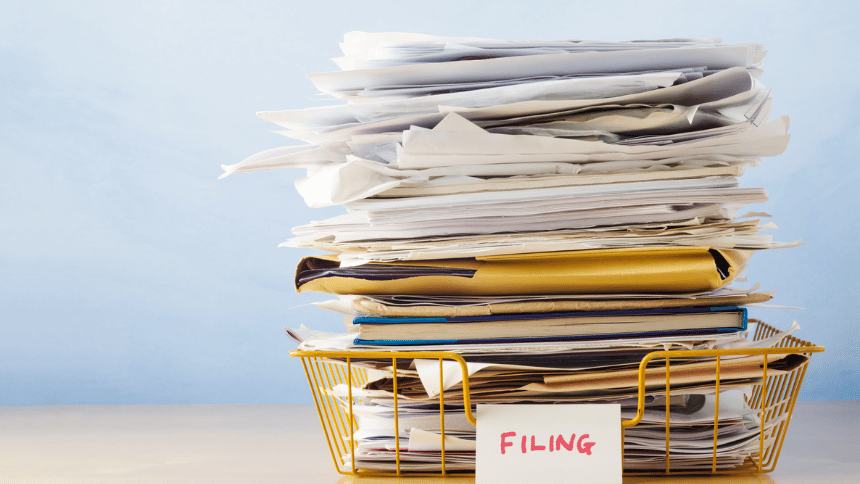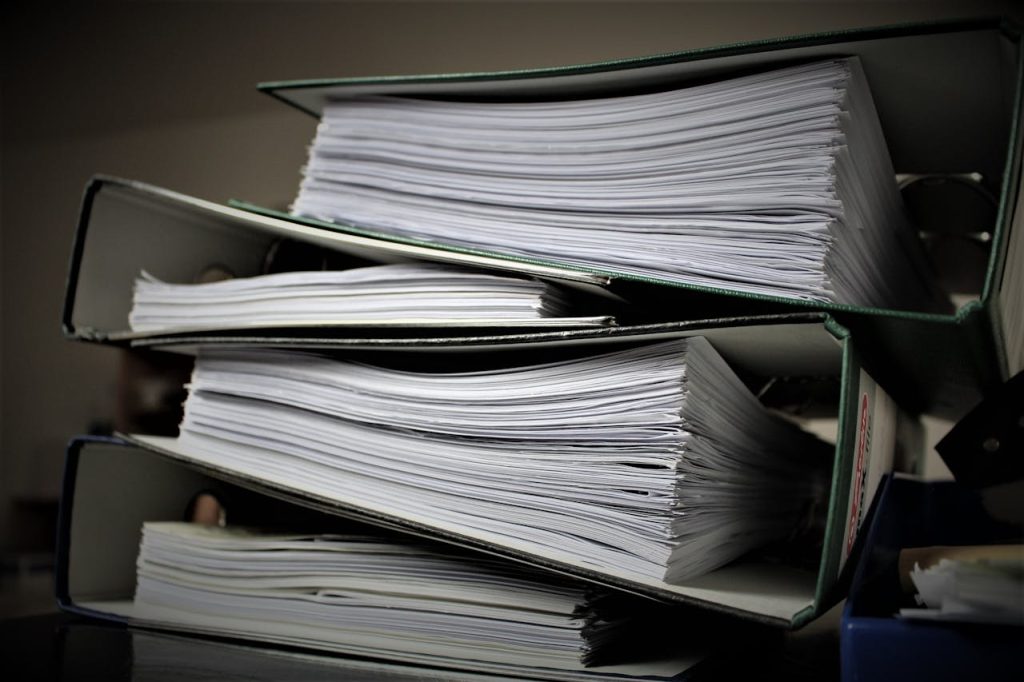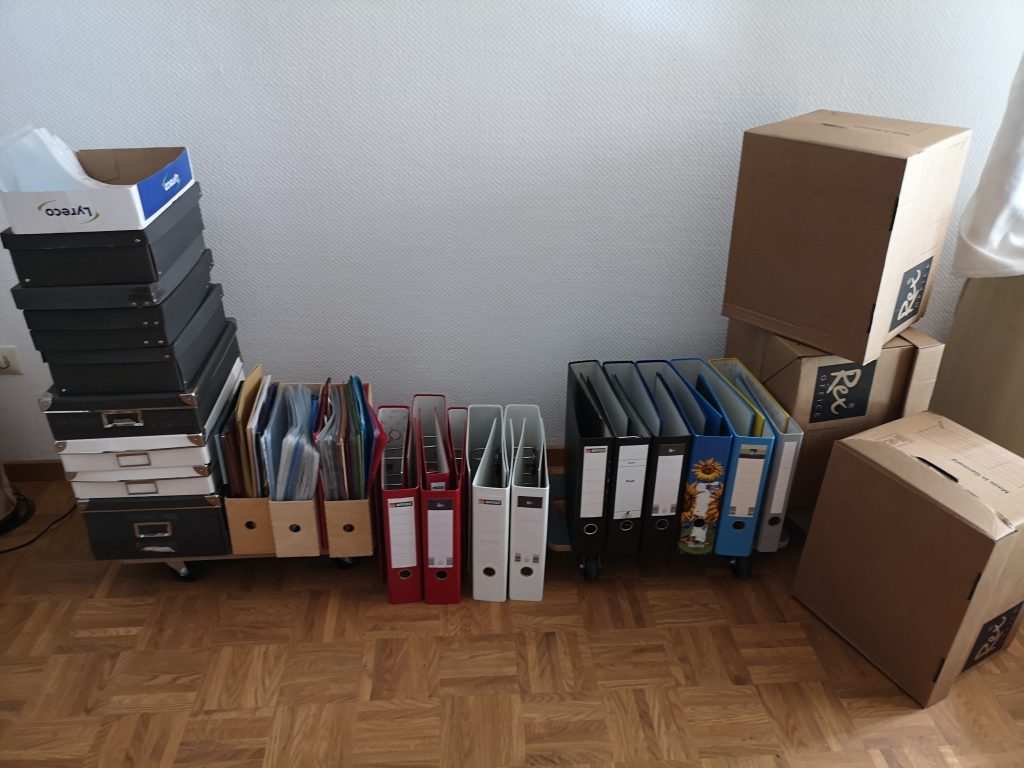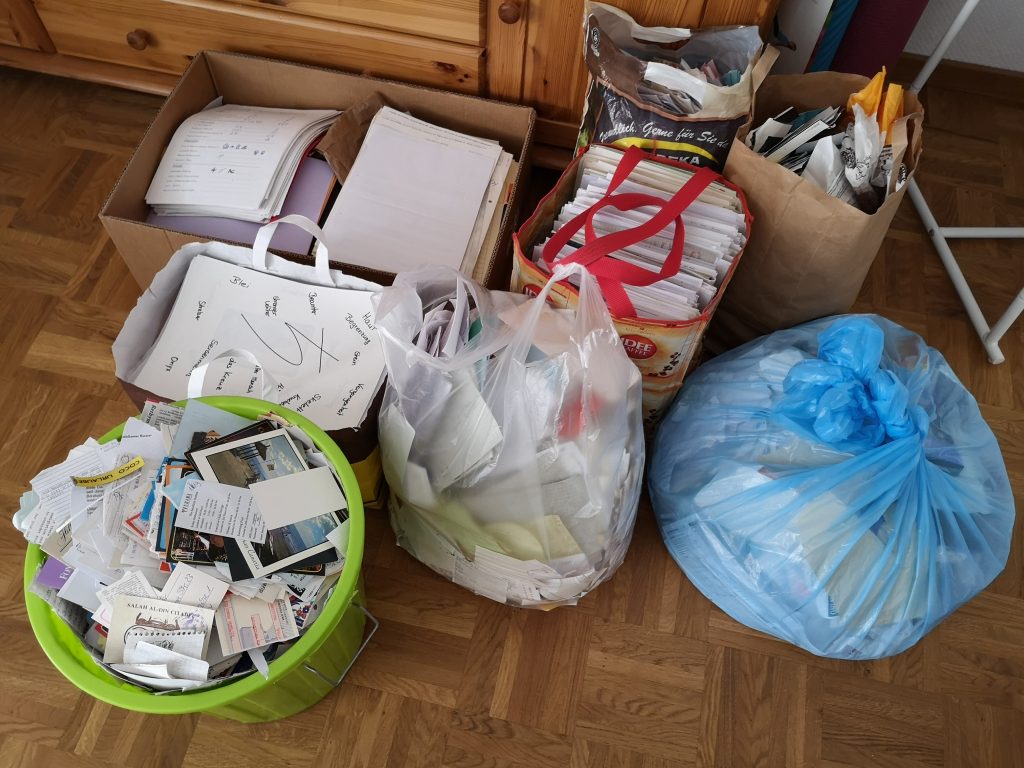Sorting out documents and folders might not sound exciting, but trust me, it can be a game-changer. Paperwork tends to be the elephant in the room, a chore we avoid, yet decluttering and organizing it can transform the way you manage your documents. Let’s dive into the world of paperwork decluttering and make this often-dreaded task a breeze! 🍃
Paperwork marks the third category in the KonMari method, and it’s undoubtedly one of the trickier ones. Deciding what to keep or discard requires a bit more thought, as some documents hold significant importance. However, fear not! With a strategic approach, we can navigate the sea of papers and emerge with a clutter-free, organized system.
Marie Kondo’s Document Categories 📑
- Pending Documents: Those requiring an action from you.
- Important Documents: Permanent records like certificates, contracts, or insurance forms.
- Miscellaneous Documents: Frequently referenced items, like magazine cutouts, notes, or other interesting content.
Organizing Your Papers 🗂️
Most of us naturally sort our documents into categories, like birth certificates with other official records and recipes separate from bank statements. It would feel quite odd to mix them up, right? Typically, we organize everything by topic—certificates, bank documents, insurances, and so on—helping us distinguish the important papers from the miscellaneous ones. Additionally, when we receive mail that requires action, we’re unlikely to file it away before addressing the necessary tasks. However, chaos ensues when we fail to keep up with this system, mixing action-required documents with less important ones, or when we hesitate to discard any paperwork, fearing it might all be crucial. Regardless of the state of your files, decluttering can benefit everyone at any stage.




Decluttering Process 🗑️
I know, sorting out your papers sounds like a lot of ‘fun’, but I promise, you will not regret having done that. Just follow these three steps:
1. Pile it up: Create a visible stack of loose documents alongside all your folders.
2. Evaluate: Recognize the shock factor of the paper volume to deter future accumulation.
3. Go through it: Paper by paper and keep only what’s necessary.
Determining Necessity 🗃️
While decluttering my papers, I realized that many were from my studies—notes and cutouts I had saved for future reference or for a day when I might have time to go through them. But let’s be honest, how often do we actually sift through our folders seeking something interesting to read? Rarely, if ever. However, when your documents are well-organized and few in number, you’re more likely to know what you have and actually use it. So, when evaluating miscellaneous papers, ask yourself these two questions:
- Does it add value to my life? (Does it spark joy?)
- Would I prefer to Google the information than search through my folders?
Important and Pending Documents 📬
When dealing with important and pending documents, it’s crucial to exercise caution. Take a moment to consult reliable sources to determine which documents you should retain and whether an original is necessary or if a scan will suffice. This is particularly important for records related to taxes, pensions, and insurance coverage, as regulations can vary by country. I’m not an expert in this field and related to your country, so I recommend doing your own research—fortunately, you can find this information often in just a few minutes. If you don’t find clear recommendations: better safe than sorry!
Digitalizing Documents 📸
I’m a firm believer in the benefits of having digital versions of your documents. By storing them on your devices, in a cloud (for non-sensitive data), or on a password-protected USB stick, you can access them easily, even while traveling. This digital backup ensures that if your original documents are damaged, lost, or stolen, you won’t lose everything. Additionally, searching for documents on your computer can be much faster than sifting through physical files. Digitizing your documents can also help you declutter. If you don’t need to keep the original, consider scanning and then discarding it. One consideration I make is whether a scanned and later printed document will differ from the original. If there’s no original signature or similar feature, I often feel comfortable discarding the physical copy.
Tips for Easier Paper Decluttering 🤓
- Digitalize collectively after sorting – for efficiency.
- Keep samples for sentimental value, if needed but don’t forget, even this can be scanned.
- Scan or keep single articles rather than the entire magazines for weight reduction.
- Physical as well as digital: stay organized for even more convenience.
Final Thoughts 💭
The decluttering process may seem daunting, but the long-term benefits are well worth it. Be mindful of what you keep, and remember, a clutter-free, organized space makes future document retrieval a breeze. Push through, and you’ll thank yourself later!
Comment on this: Do you have additional tips or experiences to share? We can all benefit from collective wisdom. 🌟


